Ryogoku Sumo Town History / Culture and Chanko-Nabe Lunch
Nestled in the heart of Tokyo, Ryogoku Sumo Town stands as a cultural tapestry woven with the threads of tradition and history, akin to a living museum of sumo heritage. The streets whisper tales of fierce competitions and the rhythmic stomping of mighty wrestlers.
But what lies beyond the ancient walls of the sumo stables and the grand arena? A culinary treasure awaits, the renowned Chanko-Nabe, a dish synonymous with strength and camaraderie among sumo wrestlers. As the aroma of simmering broth beckons, one can’t help but wonder about the secrets this hearty meal holds and the stories it unfolds.
Key Points
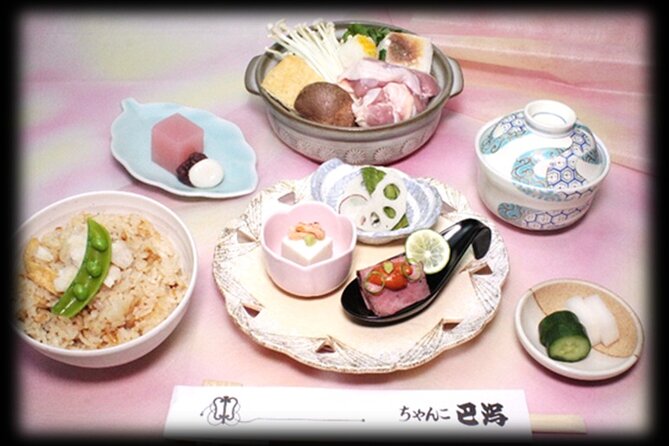
- Sumo traditions and culture in Ryogoku showcase strength, discipline, and influence in Japanese society.
- Experience elaborate sumo rituals, ceremonies, and witness rigorous training techniques in Ryogoku.
- Explore the unique lifestyle in sumo dojos and stables, where sumo is a way of life.
- Enjoy a traditional Chanko-Nabe meal at Tomoegata Chanko Restaurant, essential for sumo wrestlers’ diet.
Sumo Town History Overview
In exploring the rich history of Sumo Town, one can’t overlook the centuries-old traditions and cultural significance deeply embedded in this iconic location.
Sumo traditions in Sumo Town date back to ancient times, where the sport wasn’t just a form of entertainment but also a sacred ritual. Wrestlers were seen as symbols of strength and discipline, embodying the values of honor and respect.
The cultural significance of Sumo Town extends beyond the sport itself, influencing various aspects of Japanese society and art. From traditional ceremonies to sumo stables, the town remains a hub of activity where visitors can experience firsthand the legacy of this time-honored tradition that continues to thrive in modern-day Japan.
Ryogoku District Background
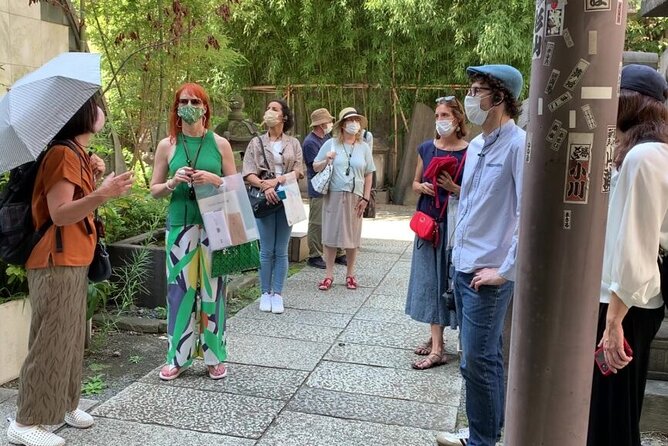
Ryogoku District, nestled in the heart of Tokyo, serves as a vibrant cultural epicenter with a rich history that intertwines seamlessly with the traditions of Sumo Town. This area, known for its strong connection to sumo traditions, has been a hub for the sport dating back to the Edo period.
Ryogoku district is home to the Ryogoku Kokugikan, the primary sumo arena in Japan, hosting major tournaments throughout the year. Visitors to Ryogoku can explore the Sumo Museum to delve deeper into the history and culture of this ancient sport.
The streets are lined with sumo stables, where aspiring wrestlers train rigorously, adding to the district’s unique charm and authenticity as a center for sumo excellence.
Sumo Culture in Ryogoku
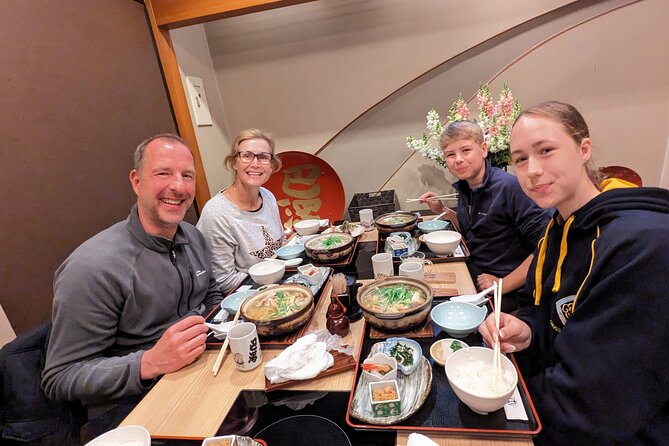
Nestled within Tokyo’s vibrant Ryogoku District lies a captivating world of sumo culture waiting to be explored. Sumo in Ryogoku is more than just a sport; it’s a way of life deeply rooted in tradition and discipline.
Here’s a glimpse into this ancient practice:
-
Sumo Rituals: Witness the elaborate ceremonies and rituals that precede each sumo match, from the symbolic ring-entering ceremony to the purification rituals.
-
Training Techniques: Learn about the rigorous training regimen sumo wrestlers undergo, including the focus on building strength, agility, and mental fortitude.
-
Dojos and Stables: Discover the dojos and stables where sumo wrestlers live and train together, seeing the unique lifestyle of a sumo wrestler.
Chanko-Nabe Lunch Tradition
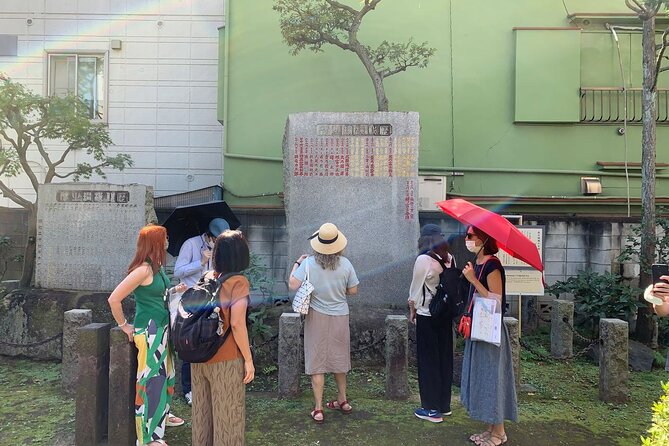
Explore the culinary tradition intertwined with sumo culture by savoring the hearty and flavorful Chanko-Nabe lunch, a staple meal for sumo wrestlers in Ryogoku. Chanko-Nabe is a hot pot dish packed with various ingredients like vegetables, tofu, fish, and meat, simmered in a rich broth. This dish is not only delicious but also essential for the sumo wrestler diet, providing the necessary nutrients and energy for their intense training regimen. Below is a glimpse of some common Chanko-Nabe recipes enjoyed by sumo wrestlers:
| Ingredients | Broth | Protein |
|---|---|---|
| Chicken | Soy Sauce-based | Pork |
| Seafood | Miso-based | Beef |
| Tofu | Salt-based | Duck |
Tomoegata Chanko Restaurant Details
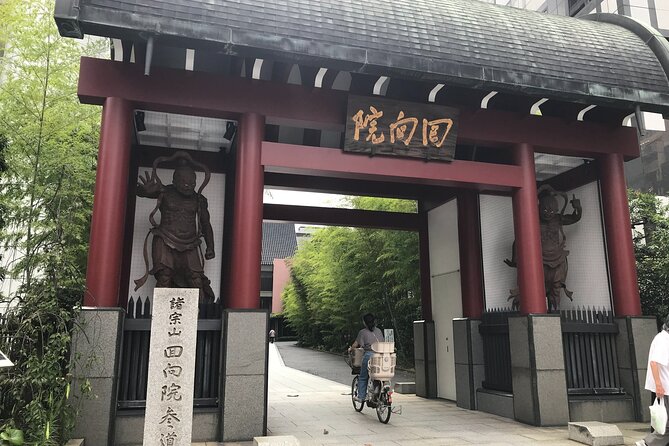
Tomoegata Chanko Restaurant offers a traditional dining experience steeped in sumo history and culinary excellence. The restaurant not only serves delicious chanko nabe, but also provides a glimpse into the rich traditions of sumo wrestling.
Here are three reasons why Tomoegata Chanko is a must-visit:
-
Authentic Chanko Nabe Recipe: Enjoy a hearty hot pot meal made with a special recipe passed down through generations, just like the sumo wrestling traditions.
-
Sumo Wrestling Decor: Enjoy the world of sumo with the restaurant’s decor, showcasing memorabilia and artifacts related to this ancient sport.
-
Interactive Dining Experience: Experience the communal dining style embraced by sumo wrestlers, fostering camaraderie and unity among diners.
Customer Reviews and Ratings
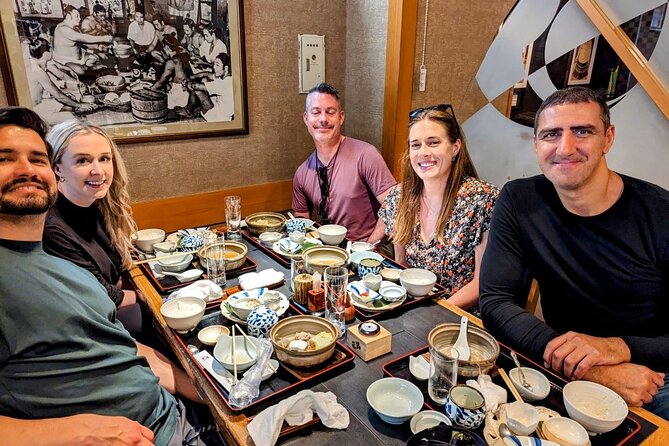
Customer sentiments towards the dining experience at Tomoegata Chanko Restaurant vary greatly, reflecting a range of impressions and opinions. Review analysis reveals a diverse spectrum of ratings, with the overall score standing at an impressive 5.0 based on 9 reviews.
The rating breakdown showcases a mix of 5 stars, 4 stars, 3 stars, 2 stars, and 1 star reviews, offering a comprehensive view of customers’ feedback. These reviews, by Viator travelers, have undergone authenticity checks to ensure reliability.
For further insights, additional reviews can be explored on Tripadvisor. The varying ratings suggest that visitors have differing experiences at the restaurant, contributing to the rich tapestry of opinions surrounding the dining hotel.
Pricing Information and Variations
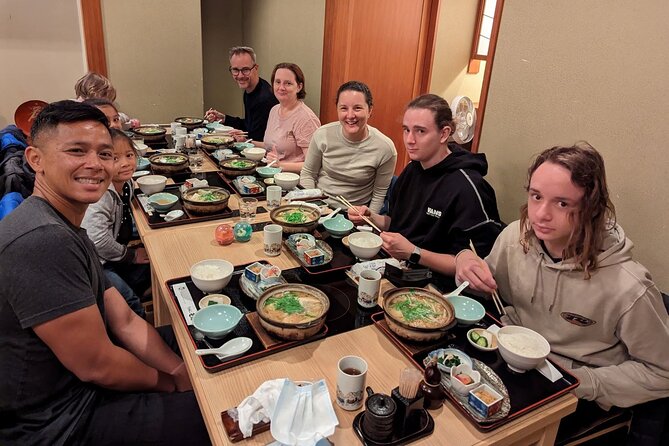
The pricing details for the Ryogoku Sumo Town tour starting from A$205.96 can vary depending on the group size, with terms and conditions applying. Group discounts and seasonal promotions may also influence the final cost. Understanding the various factors that can impact pricing is essential for travelers looking to budget their trip effectively.
-
Group Discounts: Larger groups may be eligible for discounted rates, making it more cost-effective for families or groups of friends to participate in the tour together.
-
Seasonal Promotions: Keep an eye out for seasonal promotions that could provide additional savings on the tour price, allowing travelers to experience Ryogoku Sumo Town at a more affordable rate.
-
Flexibility in Pricing: The pricing structure may offer flexibility based on demand, allowing for potential savings during off-peak times.
Additional Resources for Travelers
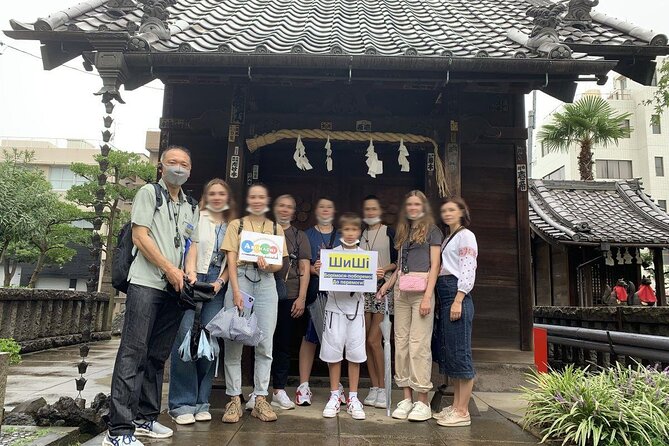
For travelers interested in exploring additional resources related to the Ryogoku Sumo Town tour, there are various tools and support systems available to enhance the overall experience.
Traveler photos offer a glimpse into the tour experience, allowing future visitors to preview what they can expect. Plus, Viator assistance is invaluable for any questions or concerns that may arise before or during the tour.
The Viator Help Center serves as a comprehensive resource for travelers seeking clarification on tour details, pricing variations, or any other inquiries. By utilizing these resources, visitors can feel more prepared and informed, ensuring a smooth and enjoyable exploration of Ryogoku Sumo Town and the delectable chanko-nabe lunch awaiting them at Tomoegata Chanko.
Common questions
What Is the Significance of Chanko-Nabe in Sumo Culture and Why Is It Traditionally Eaten by Sumo Wrestlers?
Chanko-nabe plays a vital role in sumo traditions due to its significance in the sumo diet. This nutritious stew supports the high-calorie needs of sumo wrestlers. Its communal preparation fosters unity among wrestlers and serves as a symbol of strength and tradition.
Can Visitors Participate in Any Sumo-Related Activities or Experiences in Ryogoku Sumo Town?
Visitors in Ryogoku Sumo Town can participate in sumo-related activities. They have the opportunity to watch sumo training sessions and even purchase sumo tickets to witness live matches, seeing the traditional world of sumo wrestling.
Are There Any Specific Etiquette or Customs to Be Aware of When Dining at Tomoegata Chanko Restaurant?
When dining at Tomoegata Chanko restaurant, visitors should adhere to traditional Japanese dining etiquette. Removing shoes before entering, saying "itadakimasu" before eating, and not sticking chopsticks upright in food are important cultural traditions to observe.
Are There Any Famous Sumo Wrestlers or Historical Figures Associated With Ryogoku Sumo Town?
Many famous sumo wrestlers and historical figures have ties to Ryogoku Sumo Town. Their legacies are intertwined with the area’s rich history, adding to the vibrant tapestry of this renowned cultural hub in Tokyo.
Is There a Recommended Dress Code for Visitors Exploring Ryogoku Sumo Town and Enjoying a Chanko-Nabe Lunch?
When exploring Ryogoku Sumo Town, visitors should adhere to cultural norms by wearing respectful attire. Comfortable clothing and shoes are recommended for a day of immersion in sumo history and enjoying a traditional chanko-nabe lunch.
Last Words
Experience the vibrant history, rich culture, and tantalizing flavors of Ryogoku Sumo Town. From the grand sumo tournaments to the legendary sumo stables, learn about the fascinating world of sumo wrestling.
Don’t miss the opportunity to savor the famous Chanko-Nabe hotpot dish, a symbol of sumo wrestlers’ dedication to strength-building nutrition. Explore this iconic neighborhood in Tokyo and discover the essence of Japanese tradition and cuisine in Ryogoku.